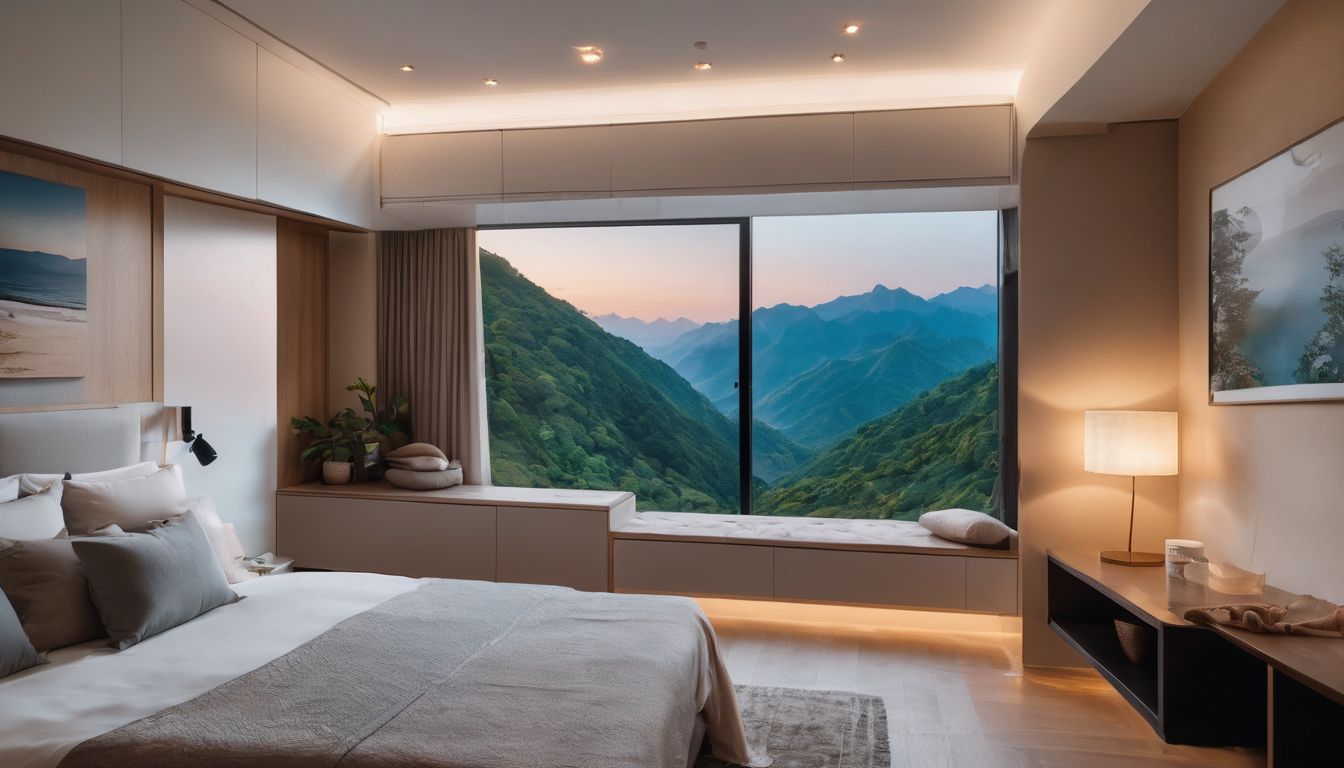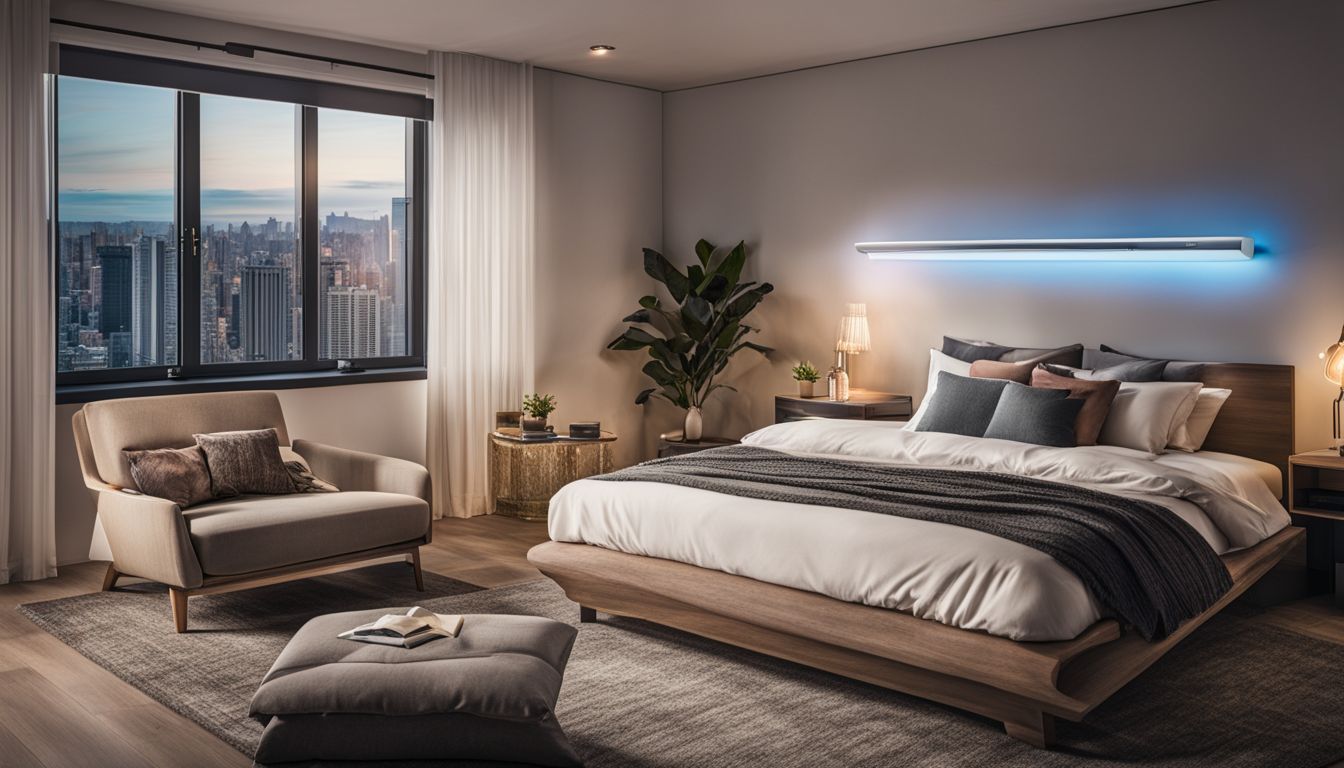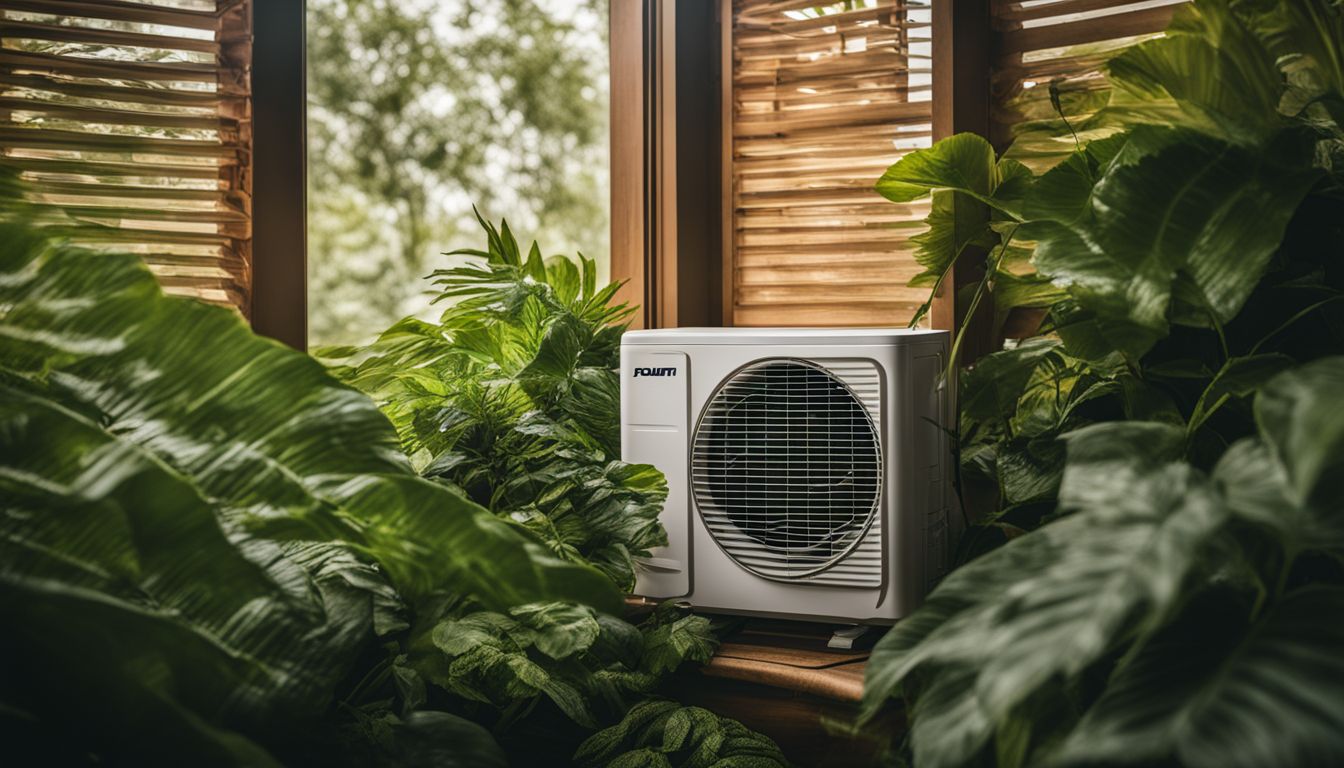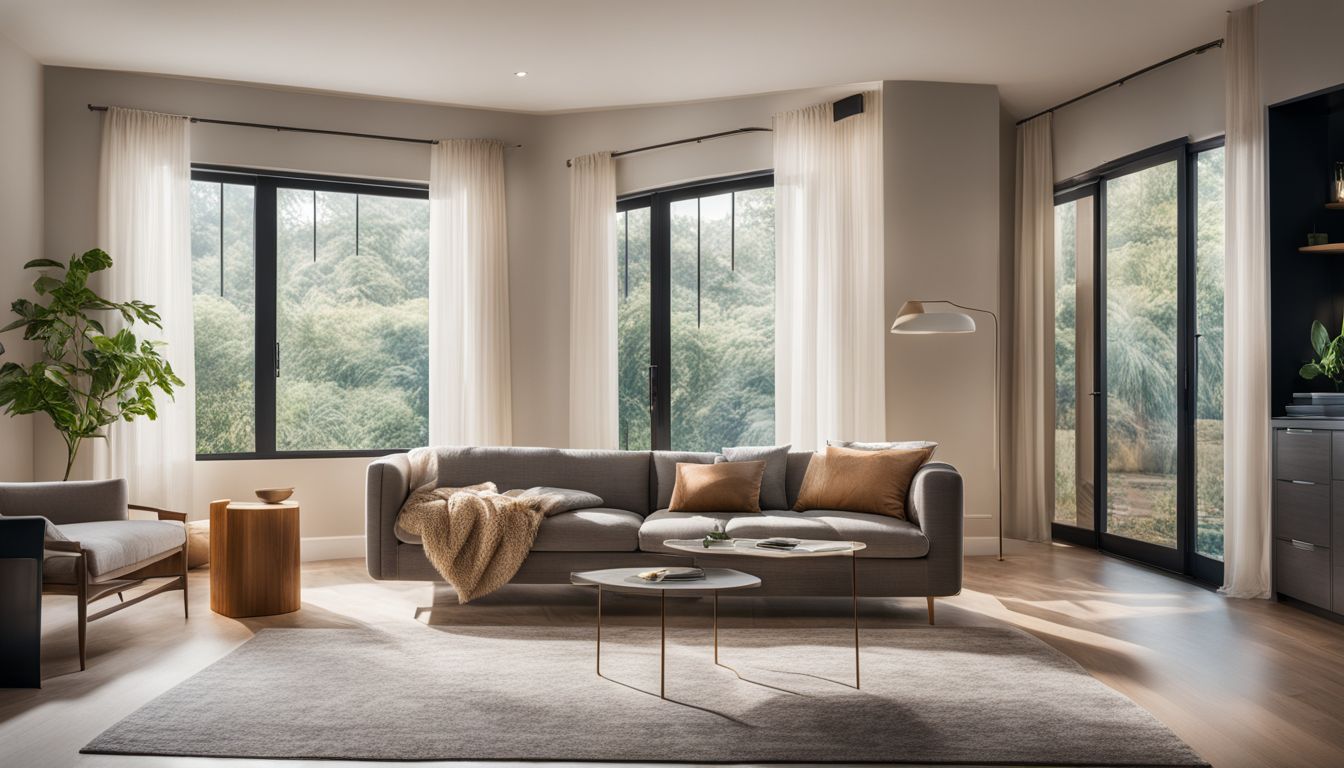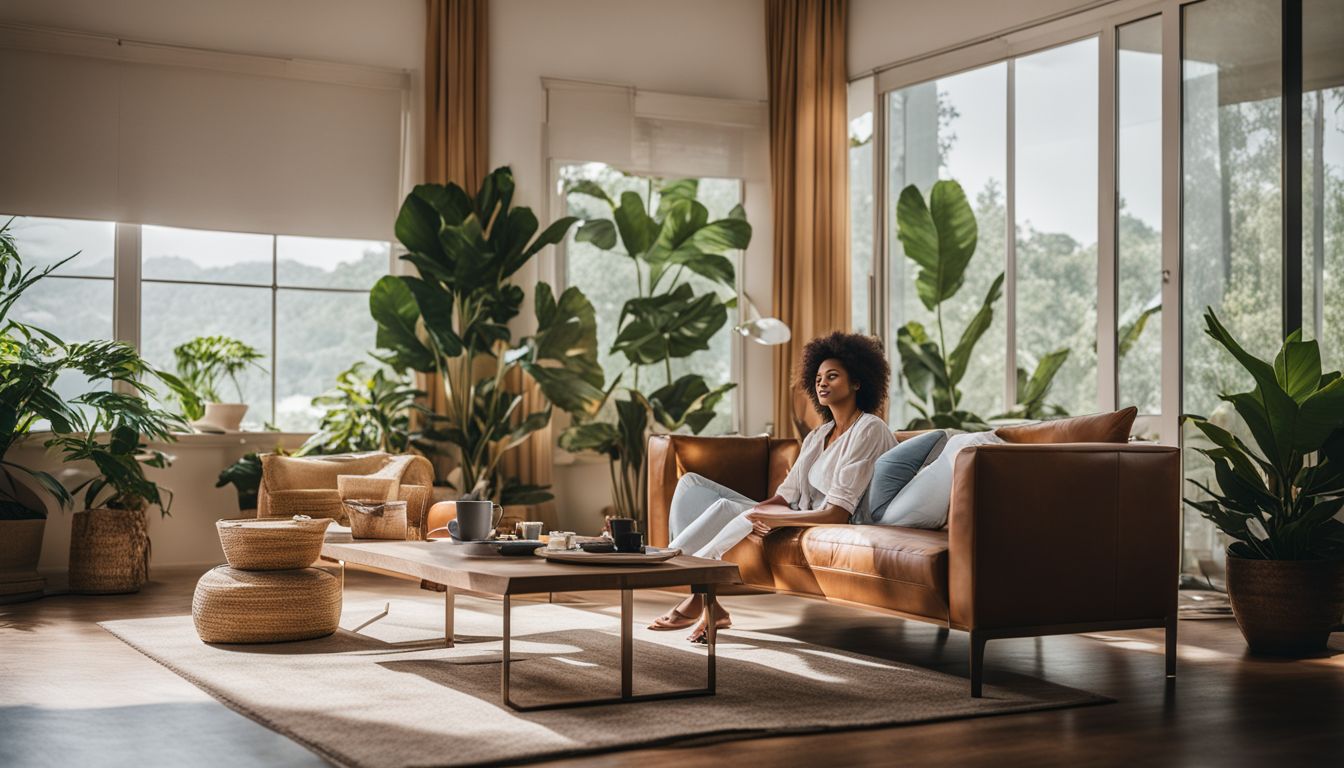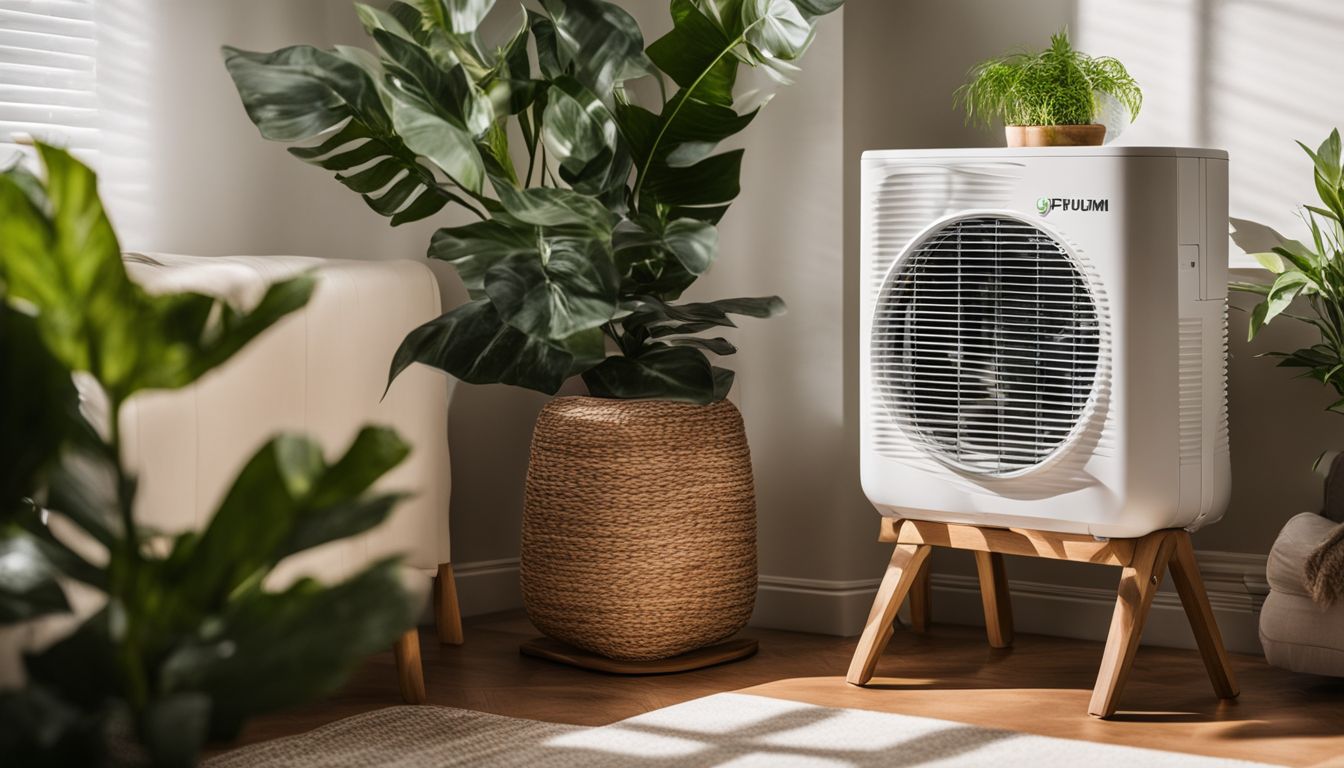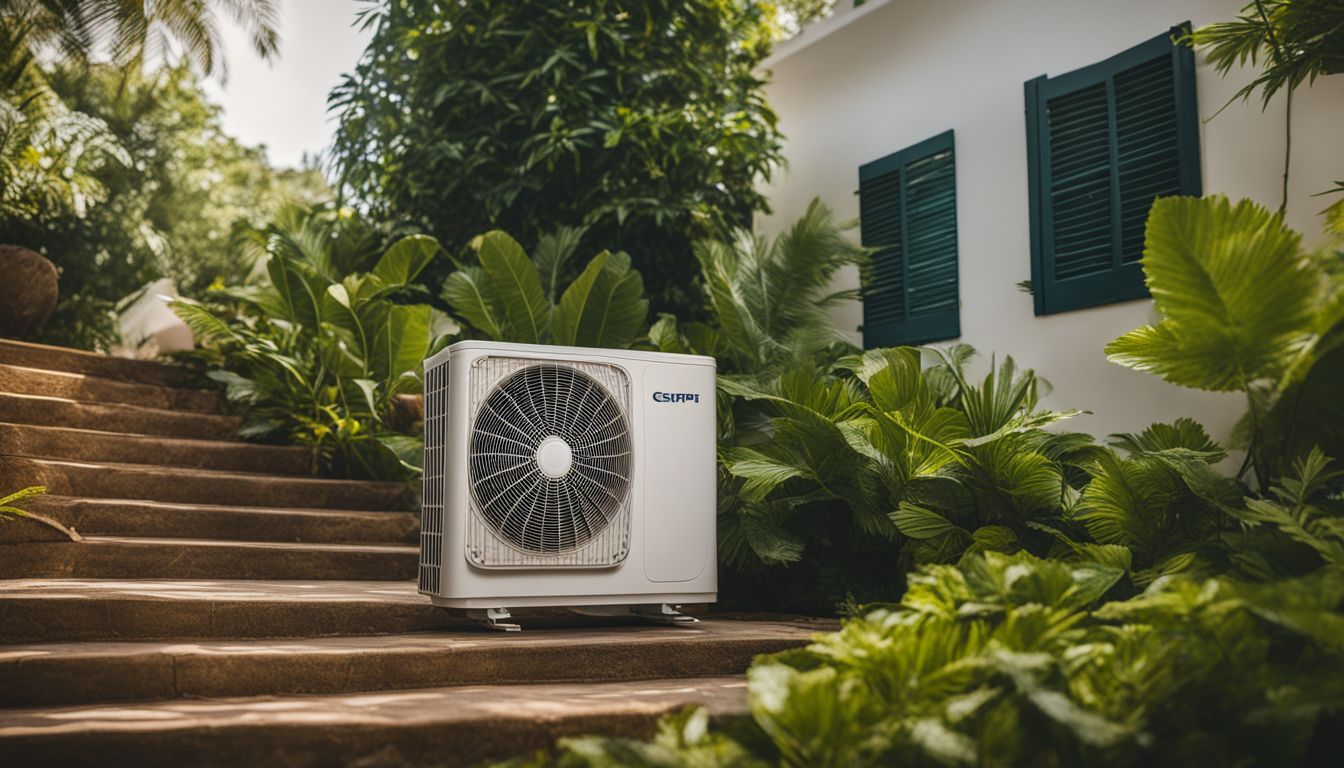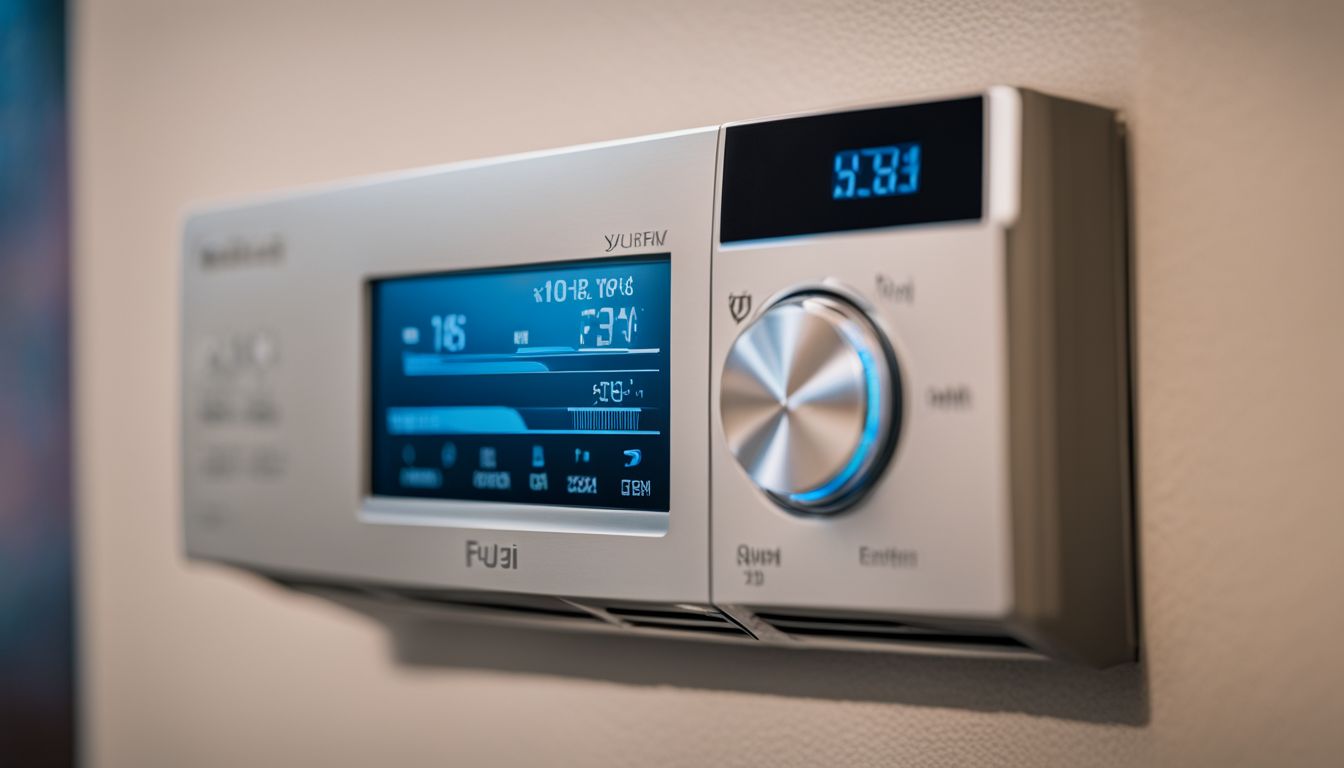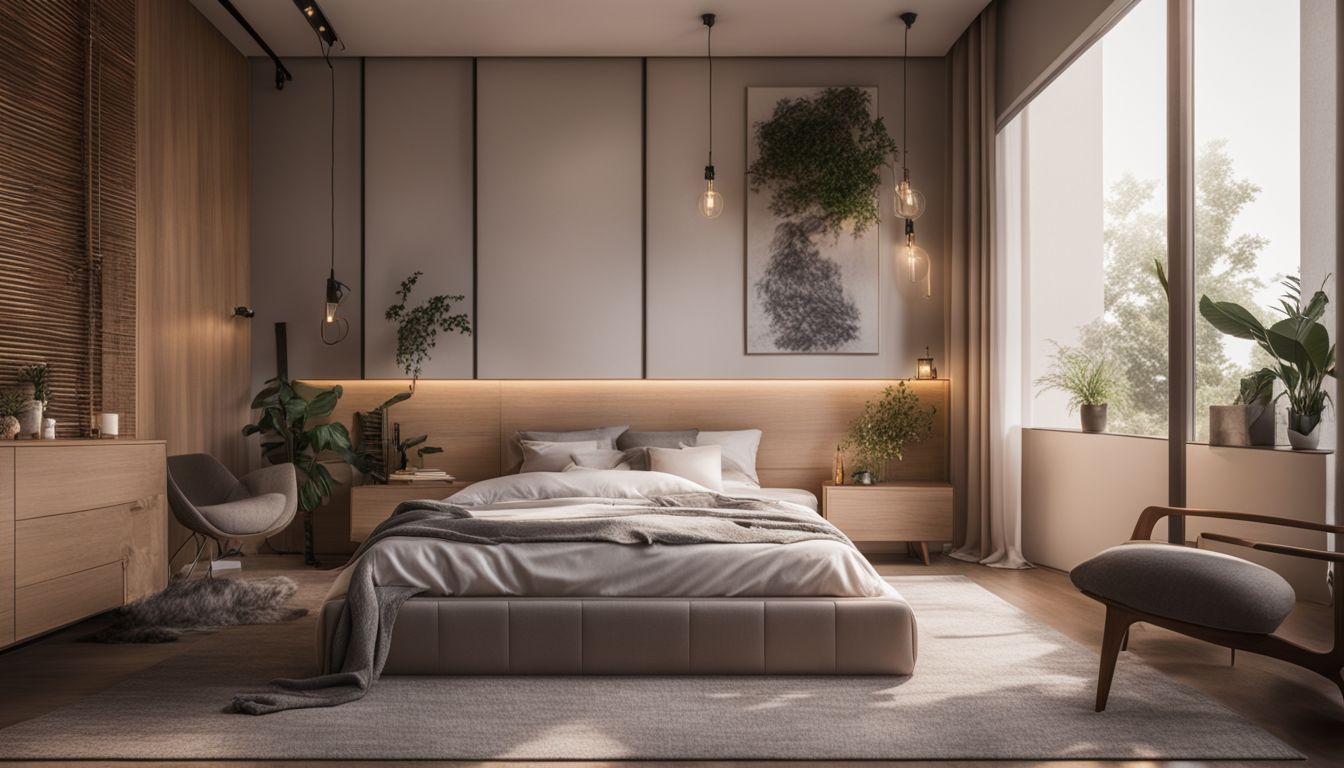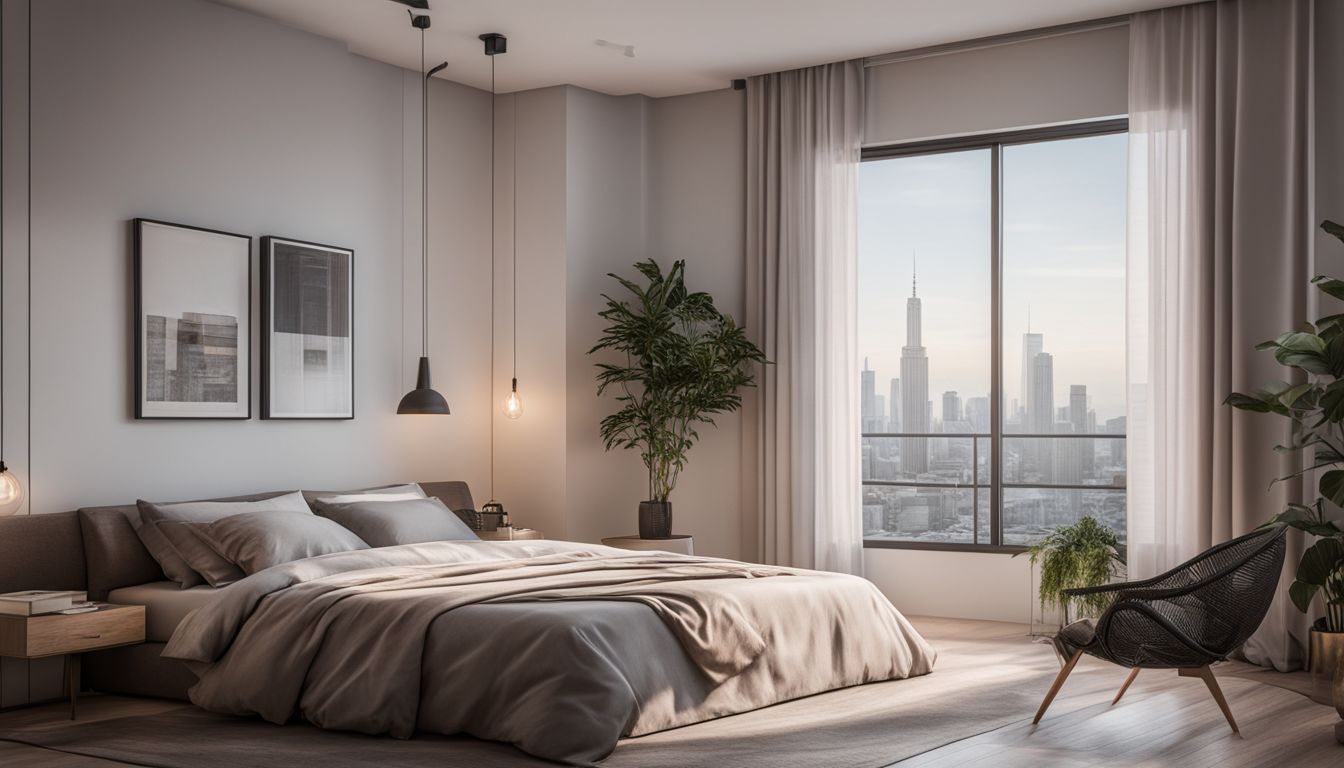Understanding your options is key if you want a quiet and relaxing air conditioner. Air conditioning doesn’t just cool the room; it can also help create a peaceful environment. Choosing one that won’t disturb your peace with noise means looking at different types of units and features they offer.
Split unit systems are often quieter and save more energy than portable ones. The right size matters, too – you’ll need to know how big your space is to get an aircon with the correct BTU power.
Plus, efficient models work better and can cut down on bills.
Some air conditioners have extras like remote controls, timers, or special quiet modes that make them easier to use without causing any fuss. Regular check-ups keep them running smoothly and silently for longer times.
It’s smart to buy from sellers who have good reviews and will let you return things if needed. With prices beginning around £2,095, including VAT for installations by EDF, budgeting also becomes part of the choice.
Finding a perfect match takes a bit of research but pays off in comfort and calmness in the end. Let’s start exploring how to pick out your ideal aircon!
Considerations When Choosing a Quiet Aircon
When selecting a quiet aircon for your sanctuary of calm, there are pivotal factors to mull over beyond mere decibel levels. You’re tasked with finding an appliance whose hushful hum complements the size of your space whilst championing energy efficiency – a balancing act crucial to achieving solace and sustainability at once.
Type of Air Conditioner
Choosing the right type of air conditioner is key to a quiet home. Split unit systems are often the best choice for silence. These consist of an indoor and outdoor unit, working together smoothly.
They tend to be sleeker and more efficient at cooling large spaces. However, they may come with a higher price tag and need someone professional to install them.
Portable units offer flexibility as you can move them from room to room. They’re easier to set up but might be noisier than split units. Before deciding, think about your space size, budget, and how much noise you can live with.
Both types have their pros and cons for energy efficiency and quiet operation.
Size of Your Space and Understanding BTU Requirements
Measure your room before picking an air conditioner. The unit’s power is measured in British Thermal Units (BTUs). You need the right amount of BTUs for your space. Too few won’t cool the room; too many will waste energy and money.
Check the square footage of your area against BTU guidelines to find a good fit.
Understanding BTUs is key to buying an efficient aircon. Room size, insulation, and sunlight affect your needs. A well-insulated room might require fewer BTUs, while one with lots of sun may need more.
Your choice impacts comfort and energy bills, so match the BTU to your space correctly. Now let’s look at different types of quiet air conditioners you can choose from.
Energy Efficiency
An air conditioner with a high Seasonal Energy Efficiency Ratio (SEER) rating uses less power. This helps you save money on electricity bills. Look for the Energy Star label when picking out an aircon.
It means the unit meets strict energy efficiency guidelines.
A higher SEER rating usually comes with split-unit systems, which are quieter and more efficient than portable units. Features like programmable timers cut down energy use by running the aircon only when needed.
Next, let’s explore the different types of quiet air conditioners available to you.
Types of Quiet Air Conditioners
When selecting a quiet air conditioner, you’re not limited to one type; various models cater to different preferences and needs while maintaining a peaceful environment. Understanding the distinctions between these hushed heroes of comfort can significantly enhance your at-home tranquillity.
Window Units
Window units fit into open windows and are great for cooling single rooms. They’re often more energy-efficient than portable air conditioners. All their parts are enclosed in one box, which helps to lower noise levels.
To pick the right window unit, you need to measure your room’s size and check the BTU rating that matches it. A higher EER means better energy savings.
You can find models with special features like quiet modes to reduce sound during sleep times. Some come with remotes so you can control them from anywhere in the room. Always make sure the window unit is properly installed to avoid gaps, as they can let noise and hot air inside.
Secure insulation around the unit will help keep your space quiet and cool without a fuss.
Built-in Units
Built-in units, like split air conditioning systems, are great for keeping your rooms cool and quiet. They consist of two parts: an indoor unit and a compressor located outside. This design makes them much quieter than other types because the noisiest part is not in the room with you.
With these air conditioners, peace reigns as they hum softly in the background.
Choosing a split system might cost more upfront, but it pays off with increased energy efficiency. In fact, EDF offers fixed-price air conditioning systems starting from £2,095. This price includes installation and VAT which means no unexpected costs later on.
After installing a built-in unit, you can sit back and enjoy a cooler space without disruptive noise.
Next up are portable units that offer flexibility and convenience for targeted cooling where you need it most.
Portable Units
Switching focus to portable units, these stand-alone air conditioners offer a distinct advantage in mobility. You can easily move them from room to room, providing cooling wherever you need it.
Even though they’re not as efficient as split units, their convenience is hard to beat. They’re ideal for situations where installing traditional ACs isn’t feasible.
Choosing the right portable air conditioning unit requires careful thought about your space. Keep in mind factors like the size of the area and how much sunlight it gets, as these will influence the BTU rating needed to effectively cool your environment.
Although they tend not to be as energy-efficient, some models do come with features that help reduce energy consumption while still offering comfort and ease of use.
Additional Features for Relaxation
4. Additional Features for Relaxation: Discover how specific attributes of air conditioning units, such as intelligent controls and special modes, can elevate your comfort to new levels of tranquility – delve deeper with us for a serene living environment.
Remote Control
Remote control makes your aircon easy to use from anywhere in your room. You can change the temperature, set a timer, or adjust fan speeds with just a few clicks. Imagine not having to get up in the middle of your relaxation time to tweak settings on your unit.
Split-unit air conditioners usually come with this handy tool.
A remote control also helps you access special features without hassle. You might want to cool down quickly or have the aircon run quietly while you sleep. With remote access, comfort is at your fingertips and peace of mind is assured knowing you can tailor the environment without moving an inch.
Timer
Moving from the ease of changing settings with a remote control, consider how a timer can further enhance your aircon experience. A timer lets you set specific times for your air conditioner to turn on or off, helping to save energy and money.
This feature is ideal if you want to cool your room before arriving home or reduce usage when you’re not there. Split unit systems often include programmable timers that keep running costs low by only operating when needed.
Portable units might lack this option, which means they may use more energy as they run continuously unless manually turned off. Setting up your AC to work around your schedule guarantees comfort without wasting electricity, aligning with high SEER ratings for peak efficiency.
Energy-Efficient or Quiet Mode
After setting up your aircon’s timer, think about its energy efficiency. More efficient units have higher Energy Efficiency Ratios (EER) and Seasonal Energy Efficiency Ratings (SEER).
These ratings tell you how well the aircon uses power. Look for features like energy-saving switches that can cut down on electricity use without losing comfort. A quiet mode is also great as it reduces noise, helping you relax or sleep better.
Some air conditioners come with a special quiet or night mode designed to lower the fan speed, which cuts down on sound. Variable speed compressors adjust their output to keep things cool quietly and efficiently.
This means they work less hard when full power isn’t needed, saving energy and keeping things peaceful. Remember that regular maintenance keeps your unit running smoothly and quietly—this includes checking filters and ensuring nothing blocks airflow.
Conclusion
Finding the right aircon can make your home a peaceful place. Remember to check for quiet features and energy-saving modes. Always go for the best fit for your room size. Choose an aircon that brings you comfort without noise.
Make sure it makes you feel relaxed and cool all summer long.
FAQs
1. What makes an aircon quiet and relaxing?
An aircon becomes quiet and relaxing when it has a high Energy Efficiency Ratio (EER) and the highest SEER rating, which means it runs efficiently with less noise.
2. Can an air conditioner also work as a heater or dehumidifier?
Yes, some room air conditioners come with built-in heaters and dehumidification functions to keep your space warm and free from dampness.
3. How do I choose an energy-efficient aircon?
Look for an evaporative cooler or a model with a high EER label; this shows better energy efficiency, saving you money on bills.
4. Who can guide me on selecting the best quiet aircon for my home?
You might want to seek advice from experts like Danny Lipford who understand the parameters of what makes an efficient and quiet unit for your specific needs.

